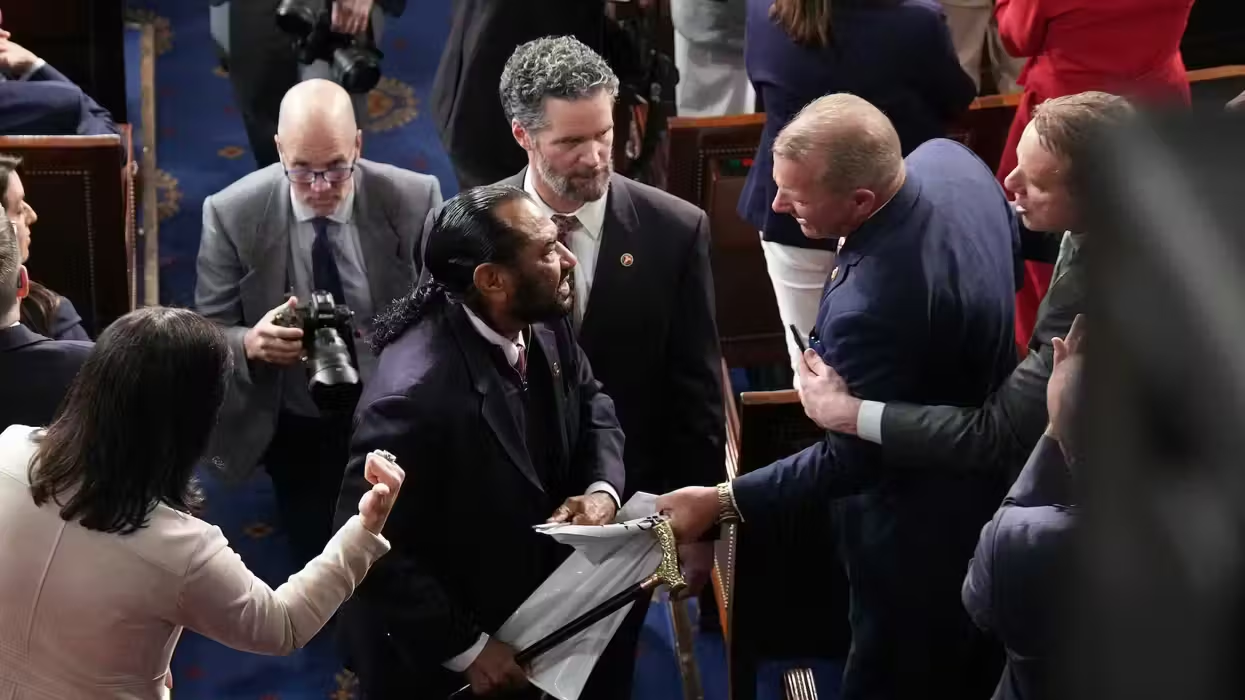
© 2026 Blaze Media LLC. All rights reserved.
Concept Photos: IT Startup to Skirt Around Immigration Law With Floating Vessel
December 13, 2011
"Googleplex of the sea"
Blueseed, a company that seeks to incubate the best entrepreneurial ideas in the tech industry, wants to make it easier to bring the tech masterminds from around the world to the Silicon Valley. To do so, it plans to bypass years of immigration reform by taking its business just outside -- or shall we say offshore -- from California's coast.
Last month, Ars Technica interviewed Blueseed co-founder and CEO Max Marty, who acknowledged that overall immigration reform may be a better way to go but for now is planning to set up shop 12 miles outside of U.S. boundaries in the Pacific Ocean:
Immigration law makes it difficult for many would-be immigrants to get permission to work in the United States. For example, there's an annual cap on the number of H1-B visas available for American employers to hire skilled immigrant workers. However, permission to travel to the United States for business or tourism is much easier to get.Marty pointed to the B-1 business visa as a key part of his company's strategy. With a B-1 visa, visitors can freely travel to the United States for meetings, conferences, and even training seminars. B-1 visas are relatively easy to get, and can be valid for as long as 10 years.
Blueseed plans to provide regular ferry service between the ship to the United States. While Blueseed residents would need to do their actual work—such as writing code—on the ship, Marty envisions them making regular trips to Silicon Valley to meet with clients, investors, and business partners.
[...]
Marty tells us that getting permission to enter the United States permanently becomes much easier once a firm grows. "If you have a $5 million-10 million company, there are several avenues and channels you can use to be in the country," he said. So the Blueseed ship would provide temporary lodgings until a startup grew large enough to move to the mainland.
On Tuesday, Wired got an exclusive look at the concept designs for the "visa-free offshore technology incubator". Wired notes that this idea has gotten some financial backing from big names such as PayPal founder Peter Thiel.
But is this legal and will it stand? Wired asked Gabriel Jack, an immigration attorney at the firm MJ Law in Silicon Valley, who said it appears so:
[...] he points out that workers on the floating incubator will need valid visitor visas, which can be good for up to 10 years. “There’s nothing in the [visa] law that says how often you can visit the United States. If they make it clear that they work in international waters and are using a visitor visa to stay on land,” he says. “I don’t see how the immigration department can do anything about it legally.”
As you might imagine, the hopes of running a business on a floating vessel comes with some challenges. Wired had a Q&A session with the three founders to go over some of these details. The founders say they are currently researching things like how best to get Internet capability as well as power on the ship or barge. The team seem to be considering a cruise ship for economical reasons, but Dan Dascalescu, CIO, said that "No matter what we go with, we want to be the Googleplex of the sea."
Watch Marty explain the Blueseed idea to potential investors -- interrupted by applause and laughter from the crowd:
Check out Marty's recent clip on Fox Business:
Right now, the company is acquiring investors, but Marty states that they plan to be launching the vessel in under two years.
Read the rest of Wired's Q&A with the founders and see more concept design images here. Learn more about the company at Blueseed's website.
Want to leave a tip?
We answer to you. Help keep our content free of advertisers and big tech censorship by leaving a tip today.
Want to join the conversation?
Already a subscriber?
more stories
Sign up for the Blaze newsletter
By signing up, you agree to our Privacy Policy and Terms of Use, and agree to receive content that may sometimes include advertisements. You may opt out at any time.
Related Content
© 2026 Blaze Media LLC. All rights reserved.
Get the stories that matter most delivered directly to your inbox.
By signing up, you agree to our Privacy Policy and Terms of Use, and agree to receive content that may sometimes include advertisements. You may opt out at any time.







